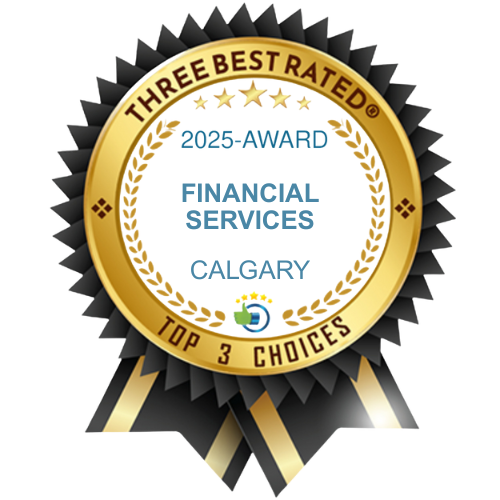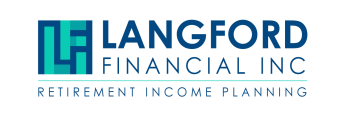Every financial advisor's website says they offer retirement planning. Some will even say that "Retirement is all we do", but in reality, they are investment advisors disguised as planners.
The truth is there is a difference between retirement planning and retirement income planning, but what is the difference? Let me explain.
What is retirement income planning?
It is specifically all about the decumulation of your savings in order to create cash flow for spending during your retirement years. And secondly, it's about taking that income in the most tax-efficient way because the less you send to CRA means more in your pocket for the things you enjoy.
As you transition into retirement you will have numerous sources of income such as CPP, OAS, work pension, RRSP, TFSA, LIRA, LIF, DCPP, individual stocks, non-registered accounts and so on. The proper order for organizing these sources is fundamental to how much sustainable income you'll have in retirement, how much tax you'll pay, and how long you can make that income last. You want to avoid "cheap'n out" for the first 20 years of retirement and then realize later in life you have too much leftover and you could have enjoyed it so much more when you were in your younger years. Believe me, someone else, like your kids, will have no trouble at all, spending and enjoying your hard-earned money.
What is retirement planning?
It's more of a generic term referring to all aspects of your life before and after your work life. It mostly involves the accumulation of investments savings before you retire, using the right account types like RRSPs and TFSAs. It involves various investment and wealth-building strategies. It may involve the timing of retirement and where you'll live. Along with your goals and specific planning ideas.
Retirement is a pretty broad category.
Our specialty is income planning for those 55+ transitioning into retirement. One of the biggest problems retirees face is the confidence to take the leap and retire. The reason this is so difficult for most people is because of the lack of understanding of how all of these account types work and how they are inter-connected. There's a lot of confusion and uncertainty which in turn results in the lack of confidence to make the decision to retire and start living one's ideal lifestyle.
Once you create an income plan the next logical sequence is to create an investment plan for the different accounts you have. What rates of return do you need for the income and growth parts of your portfolio? Let's say you need a 5% average annual rate of return, then you need a portfolio strategy that can produce that, or better, as consistently as possible. The next consideration is taking the income in the most tax-efficient manner.
Determine the order for taking pensions, CPP, OAS and any other income sources you have available. The order in which you draw from each asset is the single most important decision you'll make with retirement tax planning.
What type of planning do you need?
Transitional planning. Let's say you are 59 and you would like to retire within the next two years and you want to know what your sustainable income can be in retirement. Before you hit the play button you want some assurances.
Basic planning. Most Canadians fall into this category and along with owning their home, they have CPP, OAS and maybe $500,000 of accumulated savings spread between some RRSPs, TFSAs and an employer group plan.
Portfolio management. You would rather spend your retirement enjoying life not staring at a computer analyzing, researching and making investment decisions.
Do it yourself-er. You have done a good job managing your investments and you have a solid understanding of the financial markets and account types, but you need some help with the income structure, timing of government benefits, and tax efficiency.
Advanced planning. You are a business owner or a high-income earner and you have in excess of $2,000,000 of retirement savings, pensions, multiple investment accounts, more than one property, government pensions from more than one country, blended family, kid's in university, retirement compensation arrangements, PSUs and RSUs, and more complicated estate planning concerns. You are not as concerned with running out of money as you are with paying the least amount of tax and wealth transfer strategies. You have a lot of moving parts and you are aware of the impacts of unintended consequences. You value proper planning and are willing to pay for good advice.
Most people want to pay for basic planning but need advanced planning. Understanding the different types of retirement specialists.
The investment guy.
This person will disguise themselves as a planner, but in reality, all they do is gather investment assets. Their compensation structure is all about assets under administration and their ability to bring in new money every year. If they do not bring in more they get fired. They don't have time to be creating comprehensive income and tax planning strategies.
The insurance guy.
There isn't a problem on earth that can't be solved with insurance - or so they think. They have a bias towards complicated insurance solutions like being your own banker. They also can throw around the retirement specialists tag as well. Insurance is important and it can play a role in your planning, but it is just one piece of the puzzle.
Fee for service guy.
There is a small but growing group of advisors that only do planning on a fee-for-service basis and do not offer any financial products. They feel that this allows them to be completely unbiased. Which is impossible by the way. It's a bias to say you are unbiased. The problem is that you still need the products to take action on the plan they provide. This is a great option for someone who is a competent do-it-yourselfer.
Holistic fee-only and fee-based planners.
This is the model we have chosen to adopt. It's a planning-first philosophy and we charge a flat fee to create a comprehensive plan based on your unique needs.
The flat fee is determined after the first meeting and is based on complexity. A basic plan for a single person is between $2000-$4000 and $3000-$6000 for a couple and if more advanced planning is required the price would be higher. Once the objective and comprehensive plan is created you can choose how you want to implement your plan which may be staying with your current advisors, doing it yourself, or working with us as a full-service client. If you work with us to implement your plan then we may discount a portion of your upfront planning fee.
Take the time to get the proper advice and planning you need from the right kind of professional.
Our expertise is in the area of decumulation, investment, and tax planning strategies for individuals and couples over age 55 who are transitioning into retirement soon.
Learn more about our process and schedule an appointment.
Willis J Langford BA, MA, CFP
Nancy R Langford CRS







